Publications
Articles, publications, books, tools and multimedia features from the U.S. Institute of Peace provide the latest news, analysis, research findings, practitioner guides and reports, all related to the conflict zones and issues that are at the center of the Institute’s work to prevent and reduce violent conflict.
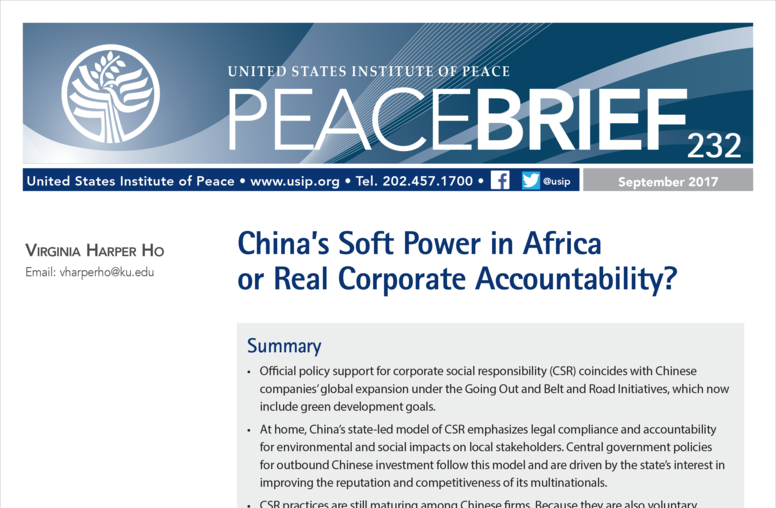
China’s Soft Power in Africa or Real Corporate Accountability?
China is the fourth largest foreign investor in Africa—more than three thousand Chinese firms operate there. An important but often overlooked aspect of this investment is the emergence of Beijing’s evolving corporate social responsibility policies and how they are applied, especially in Africa, which is what this Peace Brief explores.
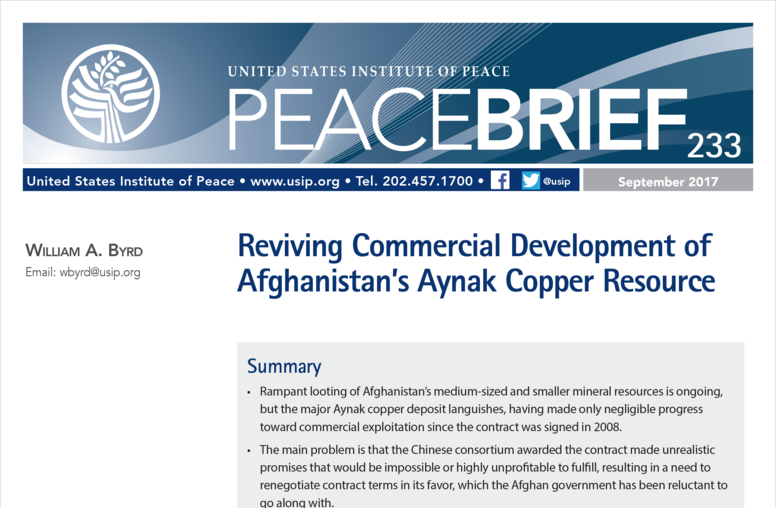
Reviving Commercial Development of Afghanistan’s Aynak Copper Resource
While other, smaller mineral resources are being rampantly looted, Afghanistan’s large Aynak copper deposit—worth upward $50 billion—has languished unexploited despite being contracted to a Chinese consortium nearly a decade ago. This Peace Brief seeks to understand what went wrong and explores options for breaking out of the current impasse. Resuscitating the development of Aynak, though challenging, would send a powerful signal of beneficial exploitation of Afghanistan’s mineral resources.
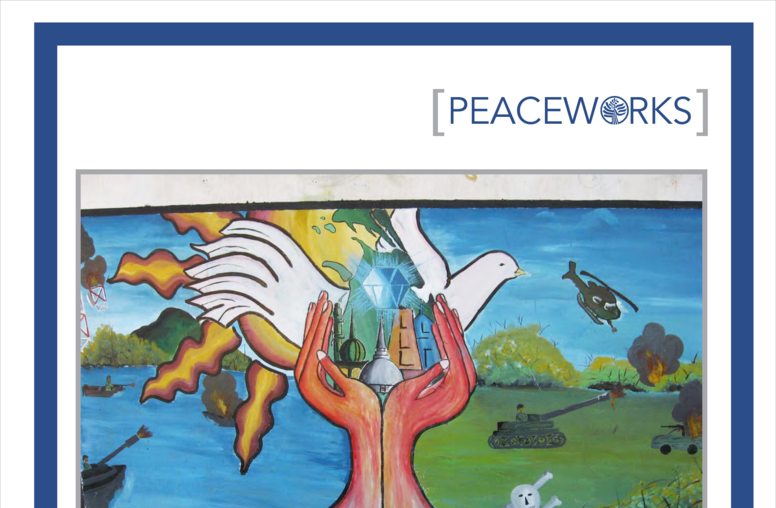
Does Reconciliation Prevent Future Atrocities?
What are atrocity crimes, why and when do they arise, and how can peacebuilding practice help to prevent them? This report delves into the conceptual foundations of reconciliation and atrocity prevention in the context of Sri Lanka’s history of conflict and ongoing reconciliation process, analyzing institutional-level reconciliation efforts and drawing from a randomized field experiment in an interpersonal reconciliation program. It suggests that by understanding the conditions under which reconciliation is most effective, peacebuilding practice will be better placed to achieve its goals after violent conflict.
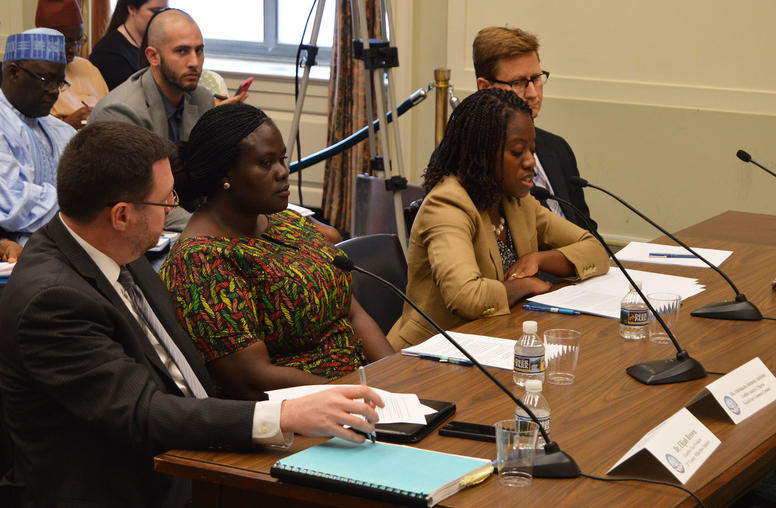
Nigeria: Conflict in the Middle Belt: Oge Onubogu Testimony
Congressman Hultgren, Congressman McGovern, and members of the Commission, thank you for convening this hearing today on Nigeria and for the opportunity to testify. The views I express here are my own and do not represent those of the U.S. Institute of Peace (USIP).
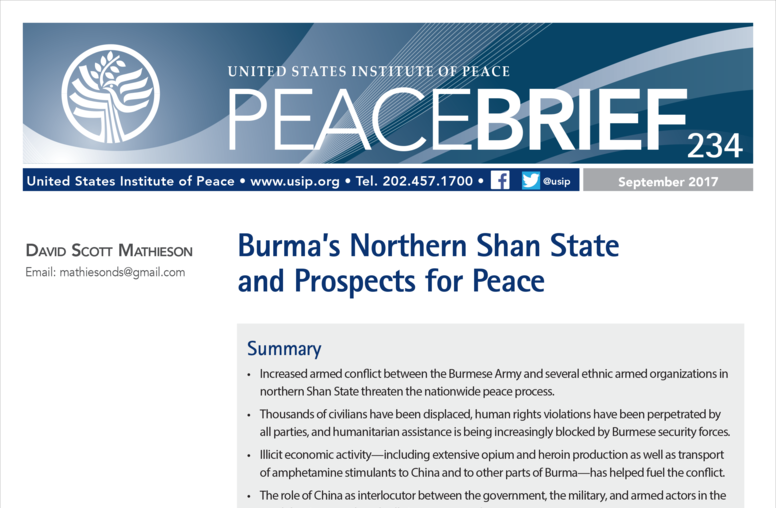
Burma’s Northern Shan State and Prospects for Peace
This Brief focuses on conflict dynamics to provide an overview of resurgent conflict patterns in northern Shan State over the past two years, outlines the armed groups involved, their competing interests, the human rights effects on the civilians in the area, and how the fighting has affected the nationwide ceasefire.
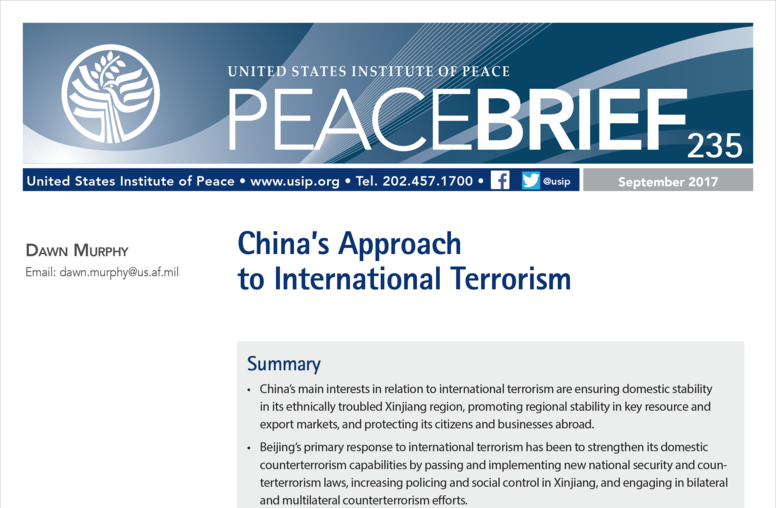
China’s Approach to International Terrorism
As China’s role in global political and economic affairs has expanded, so has its exposure to international and domestic terrorism. At the same time, it is constrained in its response by two long-held principles—nonintervention and noninterference. This Peace Brief discusses the threats to China, its response, and how these might affect its participation in global counterterrorism efforts.
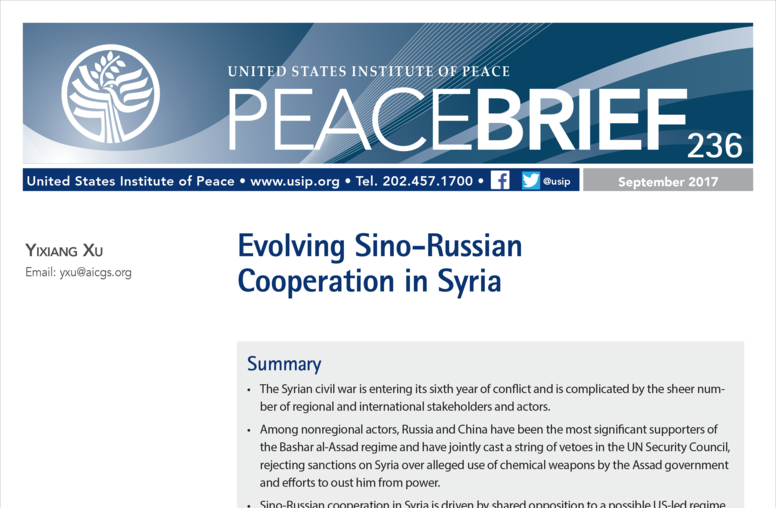
Evolving Sino-Russian Cooperation in Syria
Sino-Russian alignment in support of the Assad government in Syria is driven primarily by the mutual goal of preventing regime change and halting the spread of Islamic extremism. However, because Chinese strategic priorities lie elsewhere and Russia’s tactic of protracting military conflict in Syria contradicts Beijing’s long-term strategic interests, the prospect of future Sino-Russian cooperation in Syria is limited. This Peace Brief examines the forces driving this cooperation as well as its limits.

Nancy Lindborg on Addressing Extremism in Fragile States
Seventeen years after the 9/11 attacks, Nancy Lindborg details the findings of an interim report from the congressionally mandated Task Force on Extremism in Fragile States. Convened by USIP, the Task Force will devise a comprehensive new strategy for addressing the underlying causes of extremism in fragile states, says Lindborg, a member of the Task Force.

China’s Role in Myanmar’s Internal Conflicts
This report is the first in the Senior Study Groups (SSGs) series that USIP is convening to examine China's influence on conflict dynamics around the world. A group of thirteen experts met from February to June 2018 to assess China’s involvement in Myanmar’s internal conflicts, particularly those in Rakhine, Kachin, and Shan states, as well as China’s impact on Myanmar’s overall peace process.
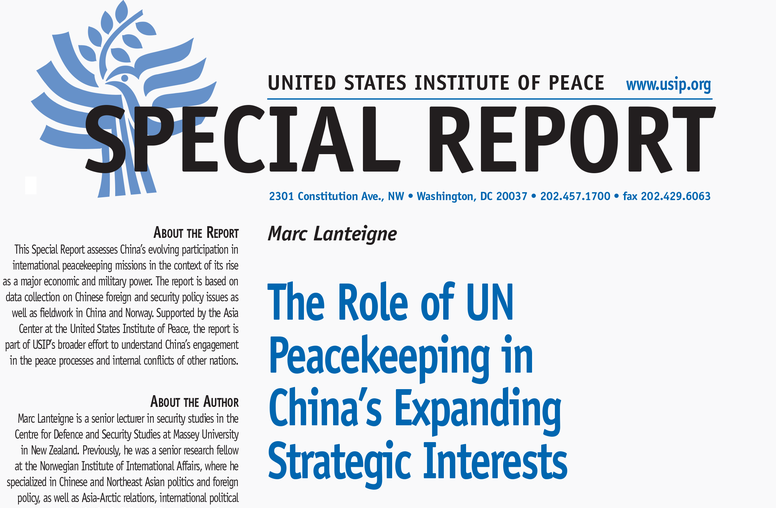
The Role of U.N. Peacekeeping in China’s Expanding Strategic Interests
Despite its growing status as a major economic and military power, China continues to be a strong supporter of UN peacekeeping operations. China is not only the second-largest financial contributor to UN peacekeeping (after the United States), it has roughly 2,500 personnel deployed in ongoing missions, including in active combat zones in Mali and South Sudan—far more than any other permanent member of the UN Security Council. This Special Report examines what China hopes to gain from its participation in UN peacekeeping, as well as the challenges it will face as its troops find themselves in more dangerous “peace enforcement” situations.